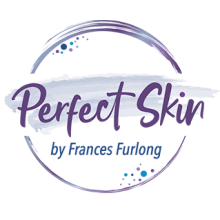How Hormones Can play havoc with our skin
Hormones are the body’s chemicals that send signals between cells. They control and regulate many functions in the body, including temperature and blood pressure, and they support other diverse functions, such as growth, cell repair, metabolism, fertility and reproduction. The communication that a hormone has with organs in the body, along with other hormones, can also affect the skin of both women and men at various stages of their lives. When consulting clients with skin conditions , looking at hormonal imbalance factors can help with giving the correct treatment from a medical perspective.
There are naturally occurring changes in body chemistry as people age, such as menopause. These changes can affect hormonal release from glands, thus disturbing their balance. Diabetes is another fairly common hormonal imbalance that occurs when there is not enough insulin, a hormone produced in the pancreas that affects metabolism. Hyper- or hypo-thyroidism is also quite common and is sometimes even detected in children. All these imbalances can manifest themselves in a wide variety of physical and emotional symptoms. The main hormones that affect the skin include estrogens, testosterone and thyroid hormones
Hormonal acne
Young adulthood. During young adulthood (adolescence to adulthood), acne often comes into play. Androgen hormones will stimulate the sebaceous glands in the skin. If they are overstimulated, acne will occur. Clients with hormonal acne may also experience irregular menstrual cycles, hair loss, diabetes and infertility. These health challenges can also lead to other skin conditions.Hormonal acne will benefit from more gentle, effective treatments, because this skin can be sensitive and aggressive treatments may cause unwanted reactions. In the treatment room, a combination of deep cleaning treatments, enzymes and light-to-medium peels are effective. Home care should include products that are antibacterial, antimicrobial, anti-inflammatory, soothing and hydrating. Vitamin A derivatives, salicylic and glycolic acid. Hyaluronic acid and extract of edelweiss are all great products for these skin types.
Pregnancy
Pregnancy. Another highly imbalanced hormonal stage occurs during pregnancy, and often results in melasma, also commonly known as “pregnancy mask.” This condition occurs when there is an overproduction of melanin. Professional treatments that can help include lasers , peels and derma pen treatment. Home care during pregnancy can include natural brighteners, such as vitamin C and Arbutin. After the pregnancy, home care may need to become more aggressive, using products such as prescribed hydroquinone and tretinoin-like ingredients. During the course of the pregnancy and beyond, always recommend a broad-spectrum sunscreen of SPF 50 since this will help prevent further pigmentation problems.
Menopause
Menopause. The major phase of hormonal skin condition changes is menopause. Menopause can happen naturally as women age or be induced prematurely due to illnesses, surgeries and medications. Because the main source of female hormones, the ovaries, shut down at this time, many side effects can affect the skin, as well as the treatments done by the professional. Menopause is the state of an absence of menstrual periods for at least twelve months. There is usually a transitional period to menopause, which can include smaller stages of periomenopause, the transitional time of hormone fluctuation and post-menopause, the period of time after the very last menstrual cycle occurrence. Because each woman experiences menopause differently, treatments may need to be altered. Skin can be affected from a variety of issues during menopause, such as thinning, acne, dryness, excessive hair growth in odd places and even hair loss. When aging, the skin also becomes more sensitive, so more aggressive treatments and products used during youth may need to be altered because they are too stimulating for menopausal skin. ingredients, such as peptides, alpha hydroxy acids (AHAs) , antioxidants and hyaluronic acid will all help. Intense pulsed light will help red flushed skin whilst derma rollers will boost collagen , close pores and quench thirsty skin.

